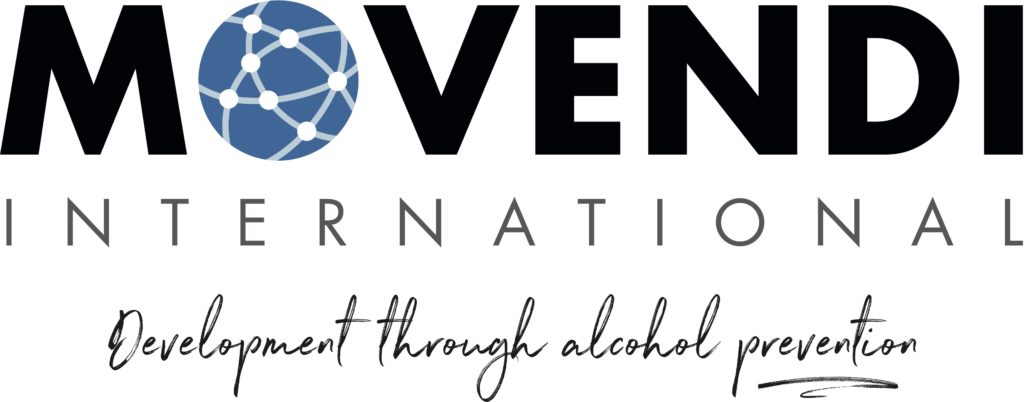Movendi International, the largest independent global movement for development through alcohol prevention, held its 70th World Congress between September 25 and October 1, 2022.
114 delegates representing 70 Member Organizations came together virtually for a week of democratic decision making. Together, they wrote the World Congress Declaration calling for a decade of action for alcohol policy. The coronavirus pandemic has reminded us just how important health and well-being really are. But good health and well-being remain out of reach for many because of rising alcohol harm. People want change and they want to be better protected from the predatory practices of alcohol companies. A decade of action for alcohol policy should include four key elements to achieve health and development for all.
70TH MOVENDI INTERNATIONAL WORLD CONGRESS DECLARATION
TOWARDS A DECADE OF ACTION FOR ALCOHOL POLICY
People consistently value health as the most important condition for living a happy and fulfilled life. We all thrive when we live in resilient communities and healthy societies. And the coronavirus pandemic has reminded us just how important health and well-being really are.
But good health and well-being remain out of reach for many. Often the health of people, communities and societies is even getting worse, not better. A major reason is that alcohol harm is rising. In the last decade, alcohol’s contribution to the global burden of disease has risen, not declined. When the direct and indirect alcohol harms are combined, the total burden due to alcohol is nearly double that from tobacco.
The biggest reason for growing alcohol harm is the alcohol industry. The products and practices of multinational alcohol companies are fuelling cancer and heart disease, violence and poverty, as well as social and environmental damage. Clearly, alcohol harm is a major obstacle to sustainable development. The alcohol industry, exactly like Big Tobacco, is deploying a range of strategies that put their own profits before people. Big Alcohol lobbies aggressively against any attempt to develop policy solutions that would protect people from alcohol harm. They interfere in our countries around the world, jeopardizing the health and well-being of billions of people.
We see the harm alcohol companies are causing in our communities every day. We also see in communities around the world that people want change. People want action to tackle alcohol harm as a health and development priority.
It is time to protect people and communities from the predatory practices of alcohol companies, such as ultra-cheap and high-content alcohol products and alcohol marketing. It’s time to create healthier environments for all through common-sense limits on the presence of alcohol in our communities and societies.
It is time for a decade of action for high-impact proven alcohol policy solutions.
It is time for full implementation of the new WHO Global Alcohol Action Plan and the SAFER technical package.
It is time for a global initiative to advance alcohol taxation.
It is time for ambitious investments in evidence-based prevention interventions in all relevant settings.
And it is time to develop a global binding treaty on alcohol.
A similar treaty in tobacco control has shown that it’s the best tool to regulate the harmful products and practices of the transnational alcohol companies, to protect people’s human right to health and development most effectively, and to ensure that our governments can collaborate globally on alcohol policy development.
Fully implementing existing, proven alcohol policy solutions will contribute to reaching good health and development for all. And the further improvement of the global alcohol policy response will ensure we make full use of the potential of alcohol policy to save lives, prevent harm, and build better societies for all.
Notes to the editor
More about the 70th World Congress of Movendi International
2010-2022 – Lost decade for alcohol policy progress
The Global Burden of Disease study for 2019 found that failure in tackling preventable non-communicable diseases has made the world more vulnerable to COVID-19. The study highlighted worrying data about alcohol’s contribution to the global burden of disease.
Alcohol remains one of the leading risk factors contributing to the global burden of disease. It is the eight leading preventable risk factor of disease. The contribution of alcohol to the global disease burden has been increasing from 2.6% of DALYs* in 1990 to 3.7% of DALYs in 2019.
Overall, trends in alcohol consumption, alcohol’s contribution to the global burden of disease, and progress towards global targets are all pointing the wrong direction.
- Progress in the formulation and implementation of national and local alcohol policy solutions has been insufficient.
- Most countries, especially low- and middle-income countries (LMICs), have NOT implemented a comprehensive set of alcohol policies.
- Many countries are failing to implement the alcohol policy best buy solutions.
- Modelling forecasts that global targets to reduce alcohol use and harm will not be met.
Alcohol affordability
- Few countries use alcohol excise taxes as a public health policy to reduce consumption.
- Less than half use price strategies such as adjusting taxes to keep up with inflation and income levels, imposing minimum pricing policies, or banning selling below cost or volume discounts.
Alcohol availability
- Less than one-third of countries have regulations on outlet density and days of alcohol sale.
- Some countries, mainly LMICs in Africa, still have no legal minimum purchase age.
Alcohol marketing
- Alcohol marketing regulation continues to lag behind technological innovations and e-commerce, including rapidly developing new delivery systems.
- Most of the countries that reported no restrictions across all media types were located in the African or Americas regions.
About Movendi International
With 141 Member Organization from 54 countries, Movendi International is the largest independent global social movement for development through alcohol prevention.
We unite, strengthen and empower civil society to address alcohol as serious obstacle to development on personal, community, societal and global level.
